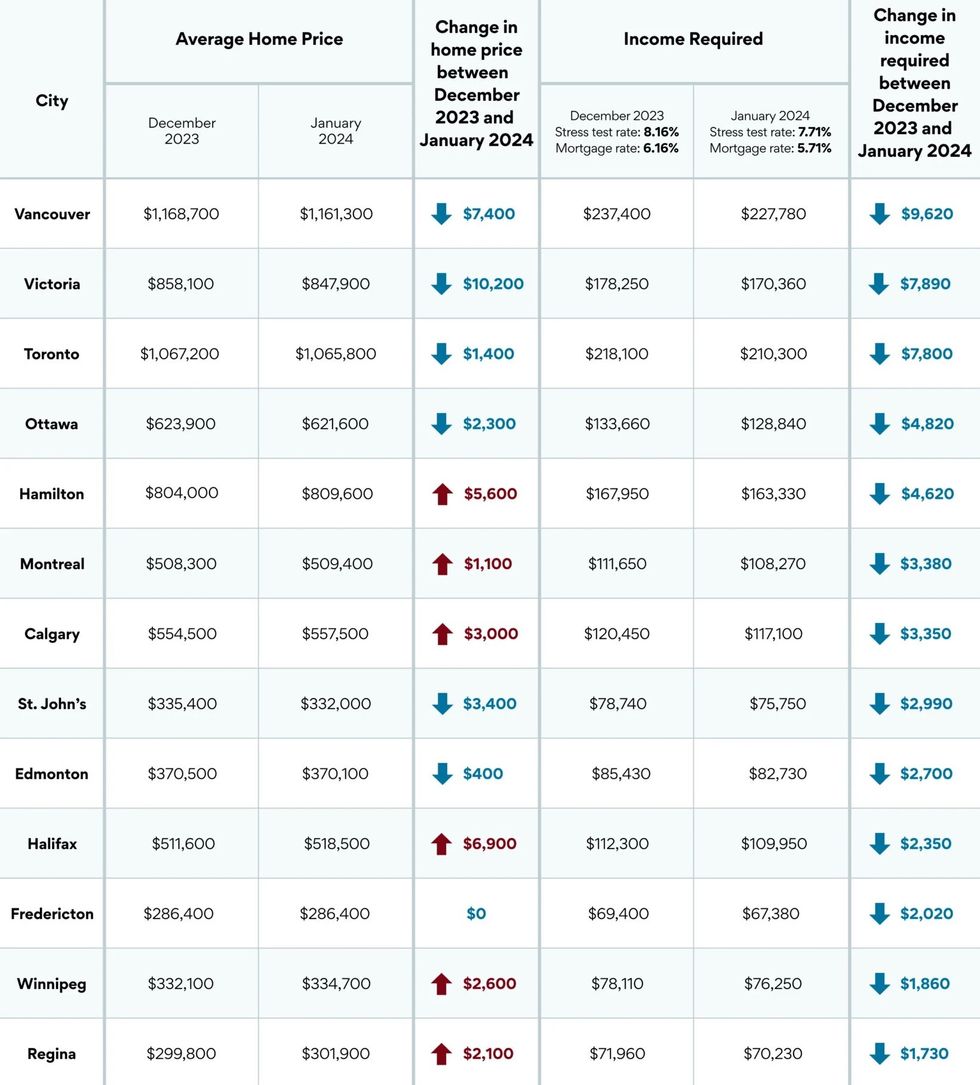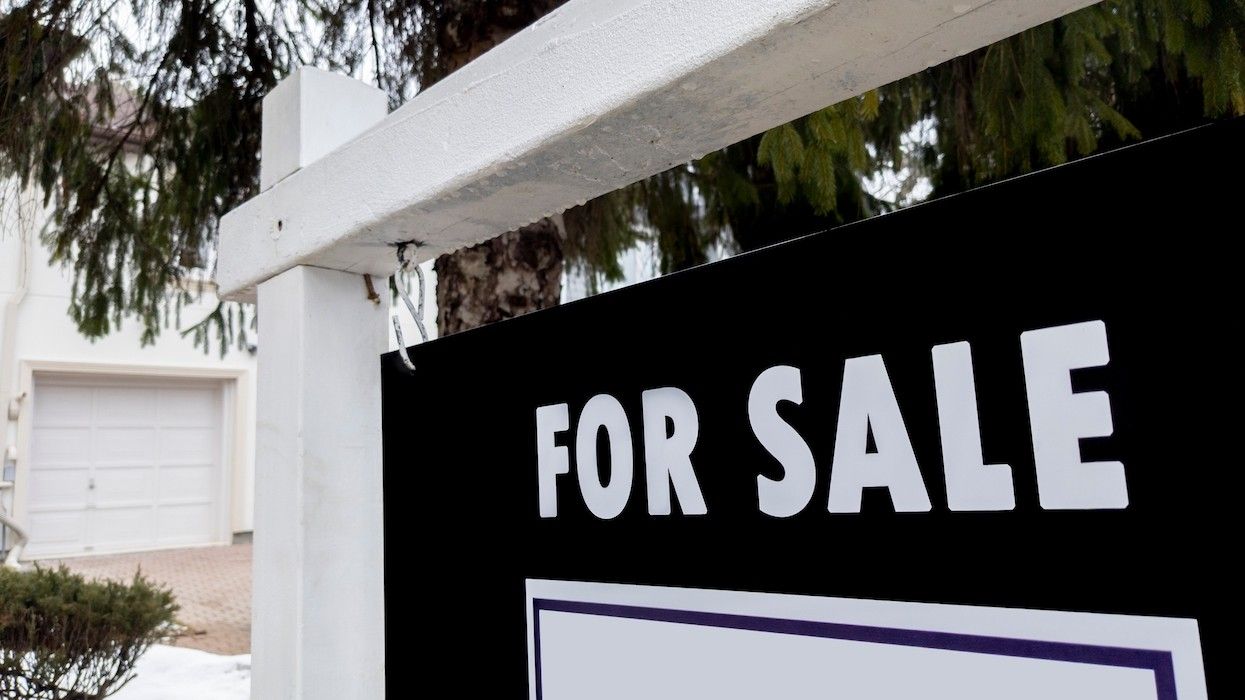January brought a (rather rare) positive development for Canadian housing affordability. New data from Ratehub.ca shows that the average income required to buy a home is down in 13 major markets across the country.
In large part, this is because home prices have “chilled” across the bulk of those markets, writes Ratehub’s Penelope Graham. In addition, Graham notes that softening mortgage rates have “effectively pulled down the mortgage stress test,” which adds 2% to borrowers’ contract rates.
The mortgage stress test fell to 7.71% in January, down from 8.16% in December. That's based on an average mortgage rate of 5.71%, according to Ratehub's report.
As mentioned, changes to the mortgage stress test and softer home prices have helped housing affordability across the board. Digging deeper into the data reveals that affordability has improved the most dramatically in Vancouver, where the average home price dropped by $7,400, translating into $9,620 less in income required to buy a home compared to December 2023. Meanwhile, in Toronto, the average home price has slid by $1,400, resulting in $7,800 less in income to buy a home.
Calgary was one of six markets to see home prices edge up between December and January, but even so, the income needed to buy a home has dipped by $3,350.

Graham warns that recent housing market heat may mean that this latest “affordability break for buyers” could be fleeting, citing the latest figures from the Canadian Real Estate Association, which show that home sales rose more than 20% year over year last month, marking the largest annual gain since May 2021.
“That’s piling pressure onto already-scant supply,” writes Graham, adding that home prices are also on the rise as of last month, edging up 7.6% to $659,395.





















